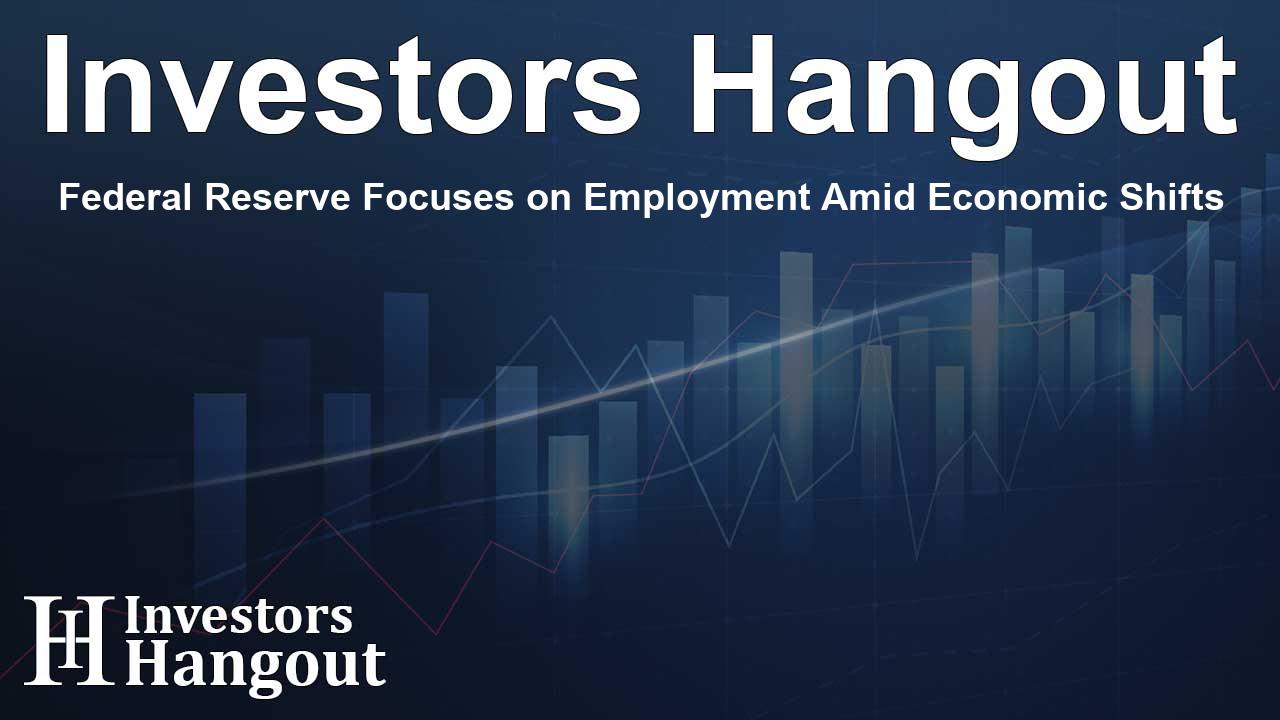Federal Reserve Focuses on Employment Amid Economic Shifts

Federal Reserve Shift: From Inflation to Employment Protection
The landscape of the Federal Reserve's approach is evolving, recently indicating a notable shift in priorities focused more on employment than inflation control. This change highlights the importance of job security and economic growth amidst fluctuating market conditions.
Key Takeaways from Powell's Jackson Hole Speech
During a pivotal address at the Jackson Hole symposium, Jerome Powell, the Chair of the Federal Reserve, made it clear that the dual mandate of the Fed is leaning towards job protection. His statement regarding adjusting policy stance resonated strongly with the market, suggesting a potential monetary easing on the horizon.
This insinuation sent the Fed's futures market into a frenzy, with probabilities of a rate cut accelerating nearly overnight. Traders had expected a cautious approach but found themselves adjusting their strategies as Powell's words seemed to confirm imminent cuts.
Market Reactions
As if reacting to a catalyst, U.S. stock markets surged in response to Powell's comments. The Dow skyrocketed to new heights, with major indices like the S&P 500 and Nasdaq also enjoying significant gains. Smaller companies saw similar benefits, as traders embraced equities that might fare better with lowered borrowing prices. The gains extended to the bond markets as well, signaling a broad-based euphoria among investors.
In addition, the shift affected the yield of 2-year Treasury bonds, which saw a decline, illustrating investor confidence in an imminent softening of monetary policy. The Fed's indication that it might prioritize job security over inflation represented a substantial pivot in their operational philosophy.
Implications for Future Economic Policies
Powell's strategic pivot has reignited discussions about the internal dynamics within the Fed. Doves within the organization advocate for aggressive action to support employment, while hawks remain vigilant against inflationary pressures. The current environment sets the stage for potential contention as the Federal Reserve navigates these complex priorities.
Market Predictions and Future Actions
The prevailing assumption is that the Fed could deliver a small rate cut in upcoming meetings, but with increasing divergence in opinions, the exact trajectory remains murky. Traders are anxious to see if policy adjustments will be sufficiently bold or cautious.
Intel's Partnership with the Government
In another major development, the government declared its role as an active participant in the market by investing significant capital into Intel (NASDAQ: INTC). This strategic move is framed as a national security effort, positioning the government as both an investor and a stakeholder.
This partnership with Intel signifies a broader trend wherein governmental support extends beyond mere subsidies, transforming into equity arrangements aimed at bolstering domestic technological capabilities. While the assistance brings immediate advantages for Intel, like enhanced shareholder stability amid financial strains, it also raises questions about the implications of government involvement in private enterprise.
Global Market Movements
Internationally, other markets, such as Shanghai's equity indexes, have experienced dynamic upswings characterized by high trading volumes driven by local retail investors. Analysts observe that significant liquidity is fueling this fervor, highlighting the evolving landscape of economic activity as nations grapple with evolving market realities.
This broader phenomenon reflects a culture of momentum-driven trading where traditional metrics become secondary to prevailing sentiment, making markets volatile and unpredictable.
Conclusion: Navigating a New Economic Era
The Federal Reserve's shift towards employment protection signifies a pivotal moment within U.S. economic policy. As the landscape continues to evolve, both traders and general investors must stay attuned to the implications of these changes for their financial strategies. The convergence of government action with corporate interests underlines a transformative path where traditional free-market principles are being reconsidered in light of 21st-century realities.
Frequently Asked Questions
How has Powell’s speech shifted the market’s focus?
Powell’s speech has redirected the market’s focus from inflation concerns to prioritizing job protection, leading to significant market movements.
What does the Federal Reserve’s pivot signify?
The pivot signifies a shift in the Fed's operational philosophy, emphasizing the importance of employment in their economic policies.
How did the stock market react to Powell's speech?
The stock market reacted positively, with major indices like the Dow, S&P 500, and Nasdaq experiencing substantial gains.
What is the significance of the government investing in Intel?
The investment marks a shift in the government’s role in the economy, moving from regulatory to directly participating as an equity stakeholder.
What are the implications of current market trends for investors?
Investors should be mindful of volatility and stay abreast of central bank policies, as market trends can rapidly shift in response to new information.
About The Author
Contact Riley Hayes privately here. Or send an email with ATTN: Riley Hayes as the subject to contact@investorshangout.com.
About Investors Hangout
Investors Hangout is a leading online stock forum for financial discussion and learning, offering a wide range of free tools and resources. It draws in traders of all levels, who exchange market knowledge, investigate trading tactics, and keep an eye on industry developments in real time. Featuring financial articles, stock message boards, quotes, charts, company profiles, and live news updates. Through cooperative learning and a wealth of informational resources, it helps users from novices creating their first portfolios to experts honing their techniques. Join Investors Hangout today: https://investorshangout.com/
The content of this article is based on factual, publicly available information and does not represent legal, financial, or investment advice. Investors Hangout does not offer financial advice, and the author is not a licensed financial advisor. Consult a qualified advisor before making any financial or investment decisions based on this article. This article should not be considered advice to purchase, sell, or hold any securities or other investments. If any of the material provided here is inaccurate, please contact us for corrections.
